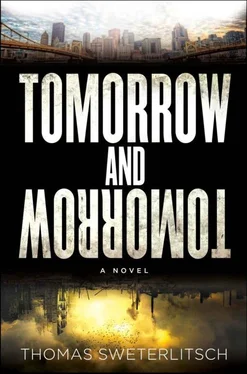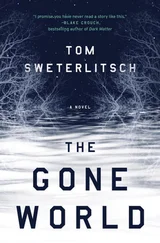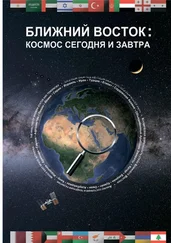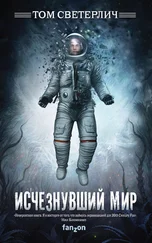“An old friend,” is all I have to say.
I wake one morning to news that the FBI arrested Dr. Timothy Waverly, living in a cabin outside of Tacoma, Washington, under the name of Timothy Filt. He was spotted buying groceries at a Target—facial recognition cameras matched his features despite a beard and the knit hat he wore pulled down almost to his eyes. Traffic cameras tracked his route as he drove, intersection to intersection, until a Washington state police drone locked onto his car and followed him for the hour-and-a-half drive to his cabin. Considered armed and dangerous, the Tacoma PD SWAT team led by FBI agents from the Seattle field office stormed the cabin and arrested him—there was no need for the show of force. Timothy was unarmed and surrendered peacefully.
The FBI releases a statement saying it had been determined that a woman had been staying with Timothy Waverly, the last person of interest wanted for questioning about the murder of Hannah Massey and information relating to more than thirty cases of missing or murdered women connected with the Waverly family, both in Pennsylvania and Alabama. The woman’s name is Darwyn Harris, from the San Francisco Bay area. The FBI release pictures—old images of Albion that Timothy must have had with him from before the bombing of Pittsburgh. She looks so young.
I don’t have the stomach to watch these things, never have—but when Gavril calls to tell me that President Meecham wears a gown from House of Fetherston for the executions I tune in to see the spectacle, the irony of it all. My aunt’s streaming a presentation of the Vanek plays by Václav Havel in the living room, so I lie in bed with a glass of warm milk, watching on the smaller flat screen bolted to the wall above my bookcase.
“A crimson gown with an ivory neck ruff that halos her head,” says Gavril. “Very Elizabethan. Her hair in plaits streaming over her shoulders like ribbons. She wears a black lace blindfold—”
“I’m watching,” I tell Gavril. “I can see her—”
America’s Queen, they call her, and she looks like a painting of ancient royalty, Elizabeth I, or maybe the Queen of Hearts. President Meecham carries out the executions in the Rose Garden, the genetically modified roses blooming into gargantuan flowers—reds, pinks, whites. Meecham will be on hand for the start of the Fashion Week runway shows in New York, flying from Washington following the garden party. The prisoners are led in, nine as always, wearing black robes. They are forced to their knees.
“Madam Speaker, the President of the United States — ”
Meecham reviews each prisoner, each one charged with a crime symbolizing the ever-present threats to the country and to her presidency. A man convicted of pipe-bombing a food court in Minneapolis, killing thirteen and wounding scores of others. A woman convicted of leaking NSA secrets to the streams, endangering American sovereignty abroad. Timothy and Waverly are among the nine, each charged with multiple counts of murder in two states. I may not have recognized them without the captioning—Timothy’s head is shaved, his scarring like white worms on his scalp, and Waverly’s hair is different, too, shorter, all those cottony locks shorn down to a white bristle. Meecham walks the line of prisoners, inspecting them. She doesn’t pause or give special attention to Waverly or his son, merely glances at them like she glances at the other prisoners—hasty, disdainful. She offers each prisoner a chance to recant, to swear their fealty to the flag.
“I should go,” I tell Gavril.
“Call me later, if you need to talk,” he says.
Meecham pauses in front of Waverly and offers him his chance to plead for leniency. I figure Waverly would have cause to beg Meecham to spare his life, considering his history with her—he once told me that he’d created Meecham, that he was responsible for her—but after Meecham finishes her speech and asks if there are mitigating reasons why she should look on his case with mercy, Waverly doesn’t speak. He simply stares at Meecham—or rather, he seems to stare through her, like he’s concentrating on something beyond her, beyond these proceedings. When his lips finally do move, the commentators suggest he’s reciting the 23rd Psalm.
Timothy doesn’t speak either when Meecham offers him leniency, although I want him to—I want him to confess here publicly, to recant everything, to break down and weep and beg, to ask Meecham for compassion, to give himself over to her mercy. He doesn’t speak, but he’s not stoic either, not like his father—his eyes well with tears and his face reflects anguish as he forces himself to keep from crying. Timothy wanted me to believe that he was working toward grace. Is this what grace looks like? All that pain—
Black hoods over their heads. Meecham signs each execution warrant with a silver pen.
I turn off the television, head to the barn and work at the press until dawn.
The last mention I hear of Albion, maybe the last mention I’ll ever hear, was on the BBC, a brief mention buried amid a flurry of other, more pressing news. A Canadian border patrol agent came forward to report he had spotted Darwyn Harris crossing from Washington State into Canada several days prior—that she had used a passport and ID under the name Albion Waverly and had been driving a Volkswagen Rabbit. “Her passport didn’t catch on the Do Not Cross list, so I let her through,” said the agent. “Our facial ID software was off-line for a few hours that afternoon, she must have known. I didn’t recognize her until later, when I was flipping through some paperwork.” Collaborating with Canadian authorities, the FBI determined that she had most likely purchased another car with cash just outside Vancouver. The segment about Albion ended and the BBC turned to continuing coverage of Nina Penrose, Page 3 girl and winner of last year’s Miss Universe pageant, and her upcoming appearance on the British version of Chance in Hell .
I wonder what name Albion’s using now—
I’ve contemplated new Adware, something simple, to retrace our steps through the City, to search for her—sometimes I imagine I’ll find her if I just spend enough time in places that were important to us, maybe in our booth at Kelly’s in East Liberty, or maybe if I ride her bus as it plunges into the tunnel just before the end of the world. She’s sure to haunt those places eventually—but I realize I’m a ghost to her now, a link to a past she wants to efface. I think of her as I take my walks around the fields. I remember her. I’ve never been to Canada, but I imagine Albion with new hair, new clothes, behind the wheel of a car bought used just outside Vancouver. I imagine her driving on interstates, heading farther and farther north, as far north as she can go. I imagine that the roads she travels are beautiful, studded with mountains and lush with evergreens. I imagine that as the roads thin and the forests darken she feels safe, finally safe. I imagine a single road cutting through all those miles and miles of forest, all that infinite forest, a single road that someone could drive for hours, for days, and never see another human face.
Although writing is a solitary act, a writer’s work is never accomplished alone.
Thank you to Stewart O’Nan, whose writing is an inspiration to me, and whose wisdom, friendship and encouragement came at an unexpected and crucial time in my life.
Thank you to Jonathan Auxier, whose critical insight helped my writing, and whose friendship enriches me.
Thank you to my close friends who read early versions of this story, whose commentary and enthusiasm were crucial to the development of this book: Angela Seals, David Seals, Nicole Capozzi, Joshua Hogan, Caroline Carlson, Brother Thomas Bondra.
Читать дальше



![Том Светерлич - Завтра вновь и вновь [litres]](/books/401288/tom-sveterlich-zavtra-vnov-i-vnov-litres-thumb.webp)
![Том Светерлич - Исчезнувший мир [litres]](/books/420722/tom-sveterlich-ischeznuvshij-mir-litres-thumb.webp)







